- Home
- Muriel Spark
Aiding and Abetting Page 6
Aiding and Abetting Read online
Page 6
“Well, well. How do you do? How’s Maria?”
They followed him into a polished parlor; it smelt keenly of cleanliness.
It will be seen that the above description of Ambrose applies to a man very convinced of himself. Calling or no calling, Ambrose had arranged his life so that there was no challenge, no fear of any but the most shallow pitfalls. He could hardly err, there was no scope for it. He was good at raising funds.
“You want to know about Lucan,” said Ambrose.
“Yes, we’re looking for him.”
“People have been looking for him this quarter century. I brought down the press cuttings for you. I’ll have to go shortly but you can stay and look through them.” He had lumbered over to an open glass-fronted cabinet and now placed a very thick package on the table before them. In the meantime the young lay brother came in with a tray of milky coffee with dry sweet biscuits. He placed them on the table and withdrew, almost disintegrated, so shadowy was he.
Exactly above the parlor where Joe and Lacey set about their perusal of the press cuttings was a bedroom, a simple monk’s cell, eight by seven feet with a mullioned window open to the vast northern plain in which St. Columba’s monastery had been put up, not very long ago.
There was a tap on the door and without waiting for a reply the tapper, Ambrose, floated silently in. His finger was laid on his lips.
“Say nothing,” said Ambrose. “Make no sound. Lucan, you have to go.”
“Why, what’s wrong?”
“Lower your voice. A couple of people are intensely looking for you. I say intensely. They’re here in the monastery, in the parlor just underneath.”
“Here? Oh, my God, have they got a warrant?”
“They’re not the police, Lucan, they are worse. They are Joe Murray with the daughter of, guess who?—Maria Twickenham. Her name’s Lacey. Yes, Maria’s daughter and the image of her mother. They have apparently nothing to do but hunt you down. Lacey is writing a book about you, of course.”
“Maria’s daughter. Oh, my God.”
Ambrose placed his finger once more to his lips. “Silence is your only hope.” He explained that he was keeping the couple occupied with a large file of press cuttings.”
“About me?”
“Of course about you. I don’t want them to suspect anything. I gave them my whole collection to look at.”
“That will help them, Ambrose.”
“Meantime, though, you can be on your way.”
“Where to?”
“Keep to the east, Lucan, and I’ll direct them south-west somehow. You’ll find a bed-and-breakfast at Kirkwall. They’ll never think of tracing you to that little hole.”
Some twenty minutes later the lay brother was observed by Lacey escorting a black-robed monk with a bulging holdall to a station wagon. They shook hands and the car departed. Lacey looked back at her copy of the London paper which held a not-very-revealing article about Lucan. She said, suddenly, “You know, this would be a good place for Lucan to hide. Are you getting anything out of these cuttings? I’m not, I seem to have seen them all.”
“They’re fairly new to me,” said Joe. “I wouldn’t mind another half hour’s go at them, if that’s all right by you, Lacey, dear.”
“Yes of course it’s all right.” She felt how strongly he was attracted by her, and began to consider to herself that the idea of a love affair between them might not be a bad idea, even if it was only an idea.
The door opened and in wafted Ambrose.
“How are you getting on?” He fingered one of the press-cutting piles. “How strange it must be,” he said, “to be Lucan, if he is still alive. From what I knew of him his thoughts will be entirely on evading capture, all the time; every day, every move, every contact with the world, all his acquaintances—all, all, revolving around that one proposition, that he must avoid capture.”
“He must be haunted by what he did,” said Lacey.
“Not him,” said Joe.
Ambrose joined in with a conviction that almost betrayed him. “Oh no, he doesn’t think of the murder,” he said. “Wherever he is, whoever he is now, he thinks of nothing but escape.”
“Do you see him ever?” said Joe.
“Not for sure. He has pretenders.”
“Not much of a cause to pretend to,” said Lacey.
“Now,” said Ambrose. He seated himself as comfortably as he could at the central table, which was at present covered with newspaper pages and cuttings. “What, Lacey, brings you to this manhunt?”
“I’m going to write a book.”
“And you think you’ll find him where everyone else has failed?—the journalists, the police and others—who knows? There have been sightings, no findings, for a quarter century.”
“What a fascinating subject it is,” said Joe. “I want to help Lacey all I can.”
“Would you tip off the police if you found him?” said Ambrose.
“Yes,” said Lacey. “No,” said Joe, simultaneously.
They laughed. “I think he must have had a lot of hardships,” Joe said. “He made a blunder.”
“Oh, but he fully intended to kill his wife,” said Lacey. “The intention was there. Which one he killed is basically irrelevant. He had been talking about murdering his wife.”
“People talk, they talk,” said Ambrose. “It was a dreadful, frightful affair, there’s no doubt about that.”
“Why is it,” said Lacey, “that most people—those who didn’t know him as well as his friends and acquaintances—didn’t at all believe he would take his own life? He was driving round the very night of the murder seeing friends of his and phoning his mother, and he also wrote some letters to his friends. Instructions about his overdrafts, garbled explanations, a declaration that he was going to lie low, but no good-byes, no hint that he might end his life, and no remorse, not a word of sorrow about the death of young Sandra, poor young Sandra. Yes, if I located him tomorrow I would tip off the police.”
“And you, Ambrose?” said Joe.
“Oh, in my trade you know how it is,” said the priest, and left it at that.
They were on their way south, gladly leaving behind them the flatlands of the north, the pearl-gray skies full of watery foreboding and squawking seafowl.
Lacey had with her a pile of press cuttings—there would be about thirty—which Ambrose had arranged to be photocopied for her. He had been anxious to get rid of the couple, had not even offered to show them round the fairly new monastery.
“The man we are looking for is stupid but cunning, not clever,” she said.
“That’s very true. One would think you’d known him, Lacey, as I did. He was stupid and boring. You had to draw him out. Sometimes, if you succeeded in drawing him out, he could be quite amusing though.”
“But not clever.”
“Oh no, not clever. He had a flair for gambling. Always lost in the end but he had a physical presence, so that a gaming house would find him an asset, egging on the novices and so on.”
“Are you sure you’d recognize him?” said Lacey.
“No. I don’t think I would. At least, not face on because I’d bet that he’s had facial surgery. But you know, I might recognize him from the back. His shape, his movements, the way he walked. Now, if you find him, what are you going to do?”
“Arrange an interview.”
“He’d never agree to that.”
“Perhaps he would have to agree,” said Lacey. “Or face exposure.”
Joe did not reply. Plainly, he thought, she has it both romantically and practically worked out. Why doesn’t she just write the book? A book about Lucan. Why bother with Lucan himself?
Lacey went on, “You see I’ll do a deal with him.”
“I was under the impression,” said Joe, “that you wanted to get him arrested and tried.”
“In a way,” she said. “Because I think he is guilty.”
“Oh, you could never be sure. As I remember him he was an unpredictabl
e fellow. Although I didn’t care for him much to begin with, well as I say, he rather grew on me.”
They were silent for a good while. Then suddenly Lacey said, “Oh my God!”
“What’s the matter?” He was driving, and slowed down.
“Did you see from the window that monk getting into a station wagon? He was saying good-bye to that lay brother. Then he drove off.”
“Yes, I did look out just then. I saw you were looking.”
“That couldn’t be Lucan, could it?”
Joe thought for a moment. “I only saw him from the back. It could have been Lucan, yes. From the height it could have been. But so could anyone that height and, I suppose, age, look like Lucan.”
“Wouldn’t it have been natural for him to have come straight to Ambrose from Benny Rolfe’s? He left early from Adanbrae Keep. Wouldn’t he have come straight on to Ambrose, his old gambling friend?”
“Very likely,” said Joe. “And now I come to think of it, that man could have been Lucan.”
“We shouldn’t jump to conclusions,” she said. “Be cautious, Joe. Dozens of men, from the back, could be Lucan.”
“It was a station wagon,” he said, in a stunned way.
“Was it a Ford?” she said.
“Well, of course I don’t know. It might have been a Ford but I couldn’t swear.”
“Nor could I.”
“He could have stopped over at St. Columba’s. Almost certainly he would do that.”
“But Father Ambrose didn’t know his whereabouts,” said Lacey.
“Ambrose is a liar. Always very shifty. All obsessed gamblers are liars.”
“The prior of a monastery?”
“I think it possible,” said Joe, “for a man to be a holy person and a glib liar at the same time. He might be trying to protect a man.”
They were now well into Eastern Ross. Traffic began to appear as if out of the scenery, and they pulled up at a small lakeside hotel called The Potted Heid.
The Lucan who had been seen off at St. Columba’s by the lay brother was the one called Lucky. Having been directed east, he decided to go south. If Joe Murray and Maria Twickenham’s daughter were tracking him, he wanted to keep an eye on them.
To the south, to the south. Lucky Lucan was heading for the airport.
But he was not at all sure how far he could trust Ambrose. Had he put the couple on his trail? Had they recognized him while he hurried across the courtyard to the hired station wagon, so wretchedly noticeable? The couple had been in the parlor engrossed, Ambrose had said, in newspaper cuttings. They were writing a book about him. Why did Ambrose keep newspaper cuttings about the Lucan case? Benny Rolfe, mused Lucan, was inconsiderate, was scared. He should have arranged the money payments by transfer instead of forcing him to come and collect in this eccentric way. But Benny was scared of being caught as an accomplice. No guts. Lucan decided to find a roadhouse somewhere near Inverness. They would probably have to pass that way. He would wait the next morning, get another car, and if possible, follow them.
As it fell out, Joe and Lacey delayed their departure from The Potted Heid to make love. It was after ten in the morning that they dumped their bags downstairs, and looked into the breakfast room. The high-priced and unjovial hotel produced some inscrutable coffee. Breakfast was definitely over. On the table where they were served the coffee which slopped over the saucer was a half-filled ashtray. Lacey, in great high spirits, pointed this out to the sullen houseman who totally ignored her. They went to pay the bill and were told that Joe’s credit card didn’t work. Then Lacey’s didn’t work. Joe said, “Let’s see,” and adjusted the card machine on a workable flat surface. His card then worked. They felt good to be on their way. They felt very good, anyway, at the grand beginning of a love affair, free and full of enterprise, without any mess of impediments.
The hills, glens, lakes, wrapped themselves around the lovers’ mood. The weather was good, with alternating cloud- and sun-breaks, making spectacular effects.
They stopped beyond Inverness for lunch at a good pub, Muir’s Cairn, this time a lucky find. Could Lucan have gone ahead of them? About ten cars were parked outside the pub, two of them white, a medium-sized Renault and a family Ford. Inside, it was warm, there was a good crowd of people, at the tables and at the bar. They were given a table by the window with a fine view.
“Now,” said Lacey, “let’s look at the clients.” Joe was already looking over the top of the menu.
There was no sign of a single man vaguely resembling the monk who had been seen into the station wagon. From where they sat it was difficult to see everyone around the bar which stretched away into a more public salon.
Lacey glanced out of the window behind her. It was raining, now. Two or three people and a couple were making towards their cars. One man in particular drew her attention. He was putting on a dark-green waterproof short jacket, and got into a white car. He was not the man they were looking for but it now occurred to Lacey that it was quite possible the suspect Lucan had changed cars. It would be possible to do so between Caithness and Inverness, and certainly not difficult for a man of Lucan’s resources. She remarked on this to Joe. He, in turn, observed that the further south they went the less likely were they to find their man.
“And besides, he might have gone directly south after leaving Benny’s place,” said Joe.
“But you know Betty Kerr said he was going north. That might mean the monastery. He was very close to Ambrose in his younger days, according to my mother,” Lacey said.
Smoked salmon was on the menu and so were lamb chops. Joe pointed this out. “Sounds delicious,” said Lacey. “That’s my choice.” Around them people at the other tables were being served mainly fish and chips or large salads piled with eatables covered with mayonnaise.
Joe, too, chose smoked salmon followed by lamb cutlets, mainly out of love for Lacey. He was in fact so taken with this charming young woman now in his life that he didn’t care very much what he ate. He didn’t care very much about finding Lucan, except to make Lacey happy.
In the quite authentic glow of their new love affair they did not focus their full attention on the comings and goings of the other customers. However, when they were served their second course of cutlets with green peas, Joe said to the waitress, “Is the smoked salmon followed by lamb in great demand today?”
“Oh, yes,” she said, “it’s always a good combine.”
Driving south, maddeningly slow on the road, was a white Ford, quite unusual enough a car in those parts. It was driven by a whitish-haired man who, from behind, might have been their man. They were aware that the amusement of guessing the possibilities of tracing Lucan rather outweighed the possibilities themselves. There were many alternative routes to the south of Caithness. But it was definitely fun. The new lovers were in the mood for fun. Still, the car driving so slowly (why slowly?) in front of them was an exciting fact. The driver wanted them to pass, and in spite of numerous bends and dips that made passing inadvisable, they could sometimes have done so. But Lacey, who was at the wheel that afternoon, didn’t do so. She kept doggedly behind the white Ford which kept doggedly at its almost funereal pace, much to the fury of the traffic behind them, which passed both cars as best it could.
“Whoever’s in that Ford knows we’re positively following him,” said Lacey.
They were approaching a tall wall surrounding a large house. Ahead were a number of people dressed in their best clothes for a wedding. The Ford slowed down even more. It glided towards the huge gates with heraldic designs picked out in gold surmounted by a pair of legendary creatures in stone. The white car caused a few young giggling men and women to make way for it as it swung into the drive. As Joe and Lacey passed they could see on the lawn in front of the house a huge marquee. Loud voices and soft music completed the scene of the wedding. Joe and Lacey drove on.
The tall, white-haired stranger made his way over the lawn to the thronging mass of joyful guests, the men in their
formal clothes, and occasionally kilts, the women in their smart outfits with big black hats, at least five hundred people. At the far end of the marquee the bride and groom could be seen with their young friends, doubled up with laughter. A quintet was playing softly, to suit the two main generations represented. By instinct, the stranger noticed a tall, dove-gray-clad woman and her equally tall and grayly distinguished husband standing apart. He went over to them. “How do you do? Congratulations. I’m Walker,” he said. “I’m afraid I hadn’t time to change but they knew I wouldn’t. Glad to be here, anyway.” Having said this and shaken hands with the couple, he helped himself to a glass of champagne from a tray that was wafted before him.
“Oh, don’t worry about your clothes,” she said nervously. The stranger looked down on his dark-gray suit and then beamed at them. “So glad you could come, Mr. Walker. I don’t know half my new son-in-law’s friends, I’m afraid.”
“Hundreds of them,” said her husband. “And hundreds we hardly know on my daughter’s side.”
“Well, I’ll go and say a word to the happy couple,” said the stranger.
It would have been difficult for him to reach the couple even if he had wanted to. The marquee was very warm both from human heat and from the side-stoves carefully placed along the sides of the tent. The stranger found a spot to stand, and before long was approached by a good-looking middle-aged woman. “I’m sure we’ve met somewhere, but I can’t place you.”
“Walker,” he said.
“Walker? I don’t recall.” She spoke with a strong Scottish accent. “But I know your face. I’m Bessie Lang.”
“Bessie!” he said. “Of course. How the years fly!” He took another glass of champagne. She refused one. “I must remind Bobbie,” said the stranger, “to give me the guest list. So many people I know here. But of course, the young people, especially on her side, are more or less unknown to me. Oh, there’s Bobbie over there”—the stranger waved to the other side of the tent—“Excuse me, won’t you? I have to make myself useful over there. Let’s keep in touch.” Then he was gone, lost in another crowd, mingling, smiling, exchanging pleasantries. He shook hands finally with the bridegroom’s mother and kilted, lace-shirted father, who were as short, it seemed, as the bride’s parents were tall; then, having judged that a good forty minutes had passed, he made his way through the chattering concentration of the Scottish privileged, back to his white Ford.

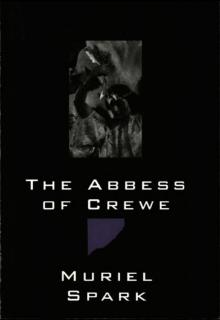 The Abbess of Crewe: A Modern Morality Tale
The Abbess of Crewe: A Modern Morality Tale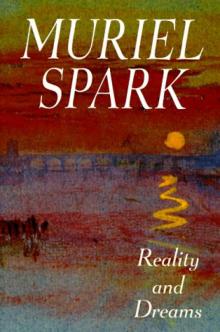 Reality and Dreams
Reality and Dreams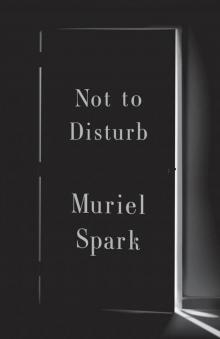 Not to Disturb
Not to Disturb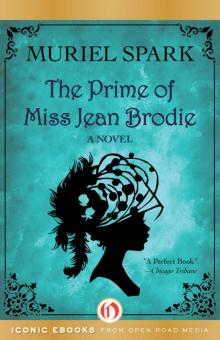 The Prime of Miss Jean Brodie
The Prime of Miss Jean Brodie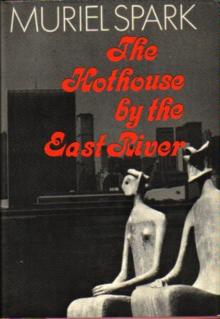 The Hothouse by the East River
The Hothouse by the East River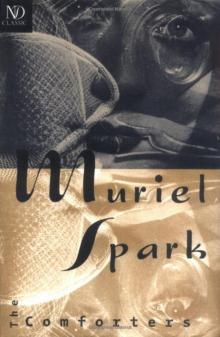 The Comforters
The Comforters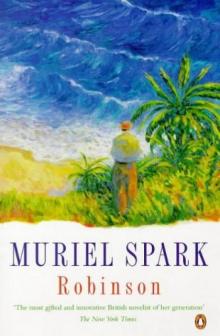 (1958) Robinson
(1958) Robinson Unknown
Unknown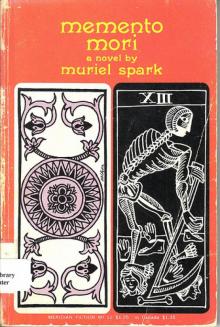 Memento Mori
Memento Mori The Finishing School
The Finishing School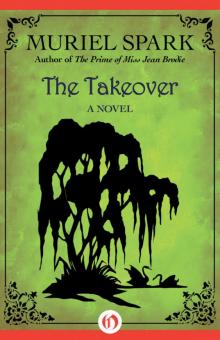 The Takeover
The Takeover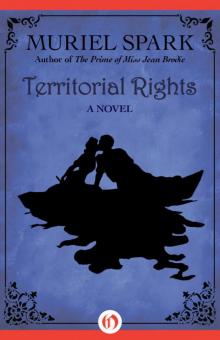 Territorial Rights
Territorial Rights The Complete Short Stories
The Complete Short Stories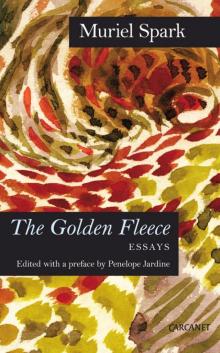 The Golden Fleece: Essays
The Golden Fleece: Essays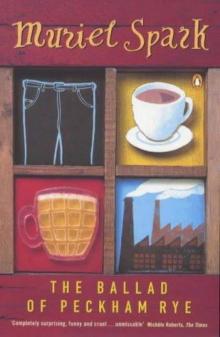 The Ballad of Peckham Rye
The Ballad of Peckham Rye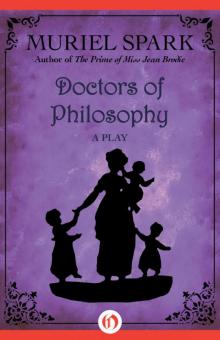 Doctors of Philosophy: A Play
Doctors of Philosophy: A Play The Mandelbaum Gate
The Mandelbaum Gate Loitering With Intent
Loitering With Intent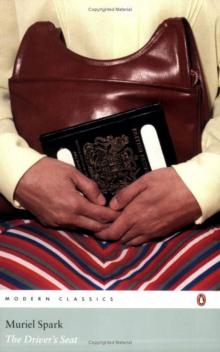 The Driver's Seat
The Driver's Seat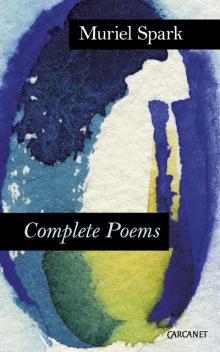 Complete Poems: Muriel Spark
Complete Poems: Muriel Spark Symposium
Symposium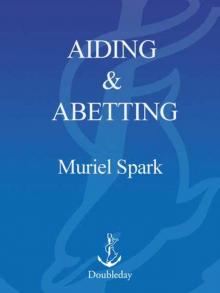 Aiding and Abetting
Aiding and Abetting The Golden Fleece
The Golden Fleece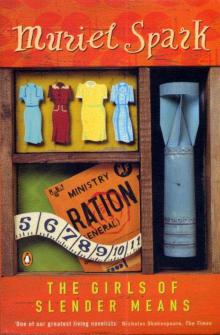 The Girls of Slender Means
The Girls of Slender Means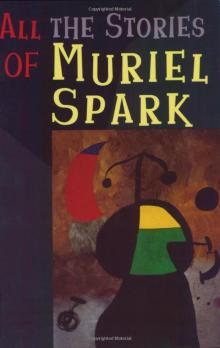 Alice Long’s Dachshunds
Alice Long’s Dachshunds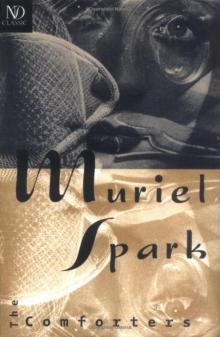 (1954) The Comforters
(1954) The Comforters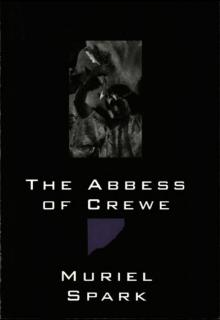 The Abbess of Crewe
The Abbess of Crewe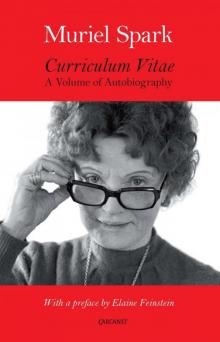 Curriculum Vitae
Curriculum Vitae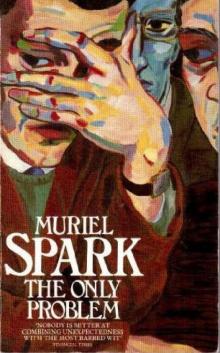 The Only Problem
The Only Problem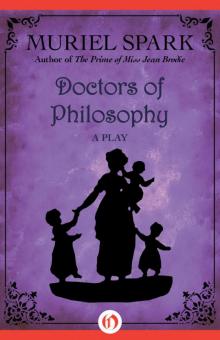 Doctors of Philosophy
Doctors of Philosophy